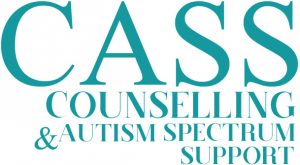We should embrace neurodiversity in our world.
There is hardly any group of people more ostracised in the community as neurodiverse people.
A report from the National Institute of Economic and Social Research stipulates that neurodiverse people are more prone to stereotypes on the discovery of their condition [1]. Marginalisation in any form in our society is atrocious; the world must do better.
About Neurodiversity
Autism, dyslexia, dyspraxia, ADHD are common neuro-divergence in our society, but there are others, and these people are around us. These conditions are not ‘outliers’ or ‘special cases’; they a result of the practical and commonplace variations in the human brain like; socialising, attention, habits, likes, and other behaviours.
Society and diversity
Lack of understanding of a particular area doesn’t prove the inexistence of the phenomenon; it’s ironic that this is what most people do. Employers mostly bypass neurodiverse people for job opportunities within their capacities (overqualified in most cases). There are 1 in 7 people found to be neurodiverse in the U.K., and only about 16% of those numbers are fully employed, despite 77% being qualified to work [2].
How we can nurture Neurodiversity in work environments
General and conventional methods of interviews/job assessments are unfair to neurodiverse people because most of them have difficulties in expressing themselves socially, and thus it is a challenge during employment processes.
- Adjusting the Recruitments processes
When companies interview for workers, it is important you do not sideline the diversely-abled people by demanding job requirements that are unrelated to the roles. Similar to what big companies like Microsoft, HP, SAP, Ford, Deloitte are doing: A programmer for your company doesn’t necessarily need an advanced social skill, or inter-person skills compared to a role for a customer care rep.
- Educating workers and managers at work
Managers/supervisors at work should educate themselves on how to effectively manage a diverse atmosphere and get the best out of them. Encourage collaborations at work by creating teams that feature neurodiverse people.
Benefits of Neurodiversity to our Society
We have to tear down the conventional, prejudiced, and incompetent ways of how we view diversity in our society and learn how to accommodate them into our world rather than sideline them.
- Innate ability to spot uncanny patterns and trends
Employers are discovering that neurodiverse persons have inimitable abilities in spotting patterns and trends. They make operation processes smoother and better at the workplace and are more efficient in some tasks.
- Neurodiversity supports inclusion, which is beneficial for your brand
Customers are very supportive of brands that they view to have a broader reach that accommodates people of all backgrounds and differences. Like SAP Jose Velasco quips: “if you want to be a vendor of choice, you have to be the neighbour of choice and employer of choice.” [3]
- Neurodiverse people have a good chance of changing the world just like any other
People like Winston Churchill, Albert Einstein, Steve Jobs, Thomas Edinson, Agatha Christie, and many others all had one form of social and physical conditions bordering on a kind of neuro-divergence or the other; but they changed the world. Therefore, surely it is evident that we should support and embrace neurodiverse people in their pursuits and dreams.
What we must never fail to realise is that we are all humans. Although we differ in many degrees and aspects, outward differences like skin colour, nose shape, and other visible variations are insignificant diversities when we compare them to the vast abilities of our brains. Hence, let us love and respect all people in our society.
References
[1] https://www.niesr.ac.uk/publications/neurodiversity-work
[2] https://www.bbc.com/worklife/article/20190719-neurodiversity
[3] https://jobs.marketingweek.com/article/the-brand-benefits-of-neurodiversity


